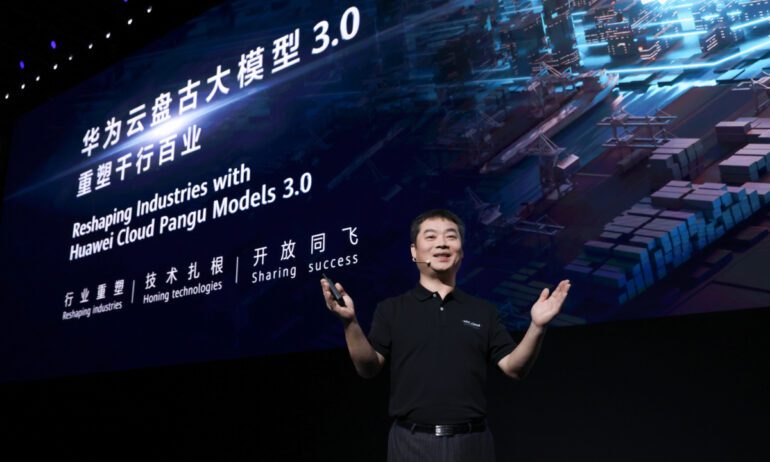TL;DR:
- Huawei launched Pangu 3.0, its latest AI language model, aiming to facilitate digital transformation in various sectors.
- Pangu 3.0 has been deployed across finance, manufacturing, public administration, energy, mining, health, transportation, and railways.
- The model offers significant improvements in meteorology predictions, providing greater accuracy 10,000 times faster than traditional methods.
- Pangu focuses on executing tasks rather than creative endeavors, prioritizing its strength in enhancing business scenarios.
- China’s AI market has seen a surge of interest, with potential concerns about a market bubble due to excessive enthusiasm.
- The Chinese internet regulator introduced draft rules to ensure AI content aligns with socialist values and doesn’t undermine national unity.
Main AI News:
Chinese tech giant Huawei made a significant stride in the field of artificial intelligence (AI) with the launch of its latest model, Pangu 3.0. This cutting-edge AI language model is poised to revolutionize various sectors, fostering digital transformation through its advanced capabilities.
During a recent event held in Dongguan, Zhang Ping’an, the CEO of Huawei Cloud, the company’s cloud service provider, unveiled Pangu 3.0 and highlighted its extensive utilization across ten sectors. These sectors encompass finance, manufacturing, public administration, energy, mining, health, transportation, and railways, with Pangu 3.0 seamlessly supporting over 400 business scenarios.
Pangu 3.0 has already showcased its potential in diverse applications, one of which is meteorology. A recent study published in the renowned scientific journal Nature showcased Pangu’s remarkable abilities in making global predictions based on decades’ worth of collected data. Huawei emphasizes that Pangu outshines traditional weather forecasting methods, delivering significantly greater accuracy at speeds up to 10,000 times faster.
Zhang Ping’an underscored the distinction between Pangu and other AI models, noting that Pangu’s focus lies in executing tasks rather than creative endeavors like writing poems. The model prioritizes its strength in enhancing various business scenarios, catering to the specific needs of enterprises.
The surge of interest in AI projects by technology companies like Baidu and Alibaba has prompted China to take notice, raising concerns about a potential market bubble fueled by excessive enthusiasm. In response, the Chinese internet regulator introduced draft rules in April to regulate the AI industry, stipulating that content generated by chatbots and generative models must align with “fundamental socialist values” and not undermine national unity, the state’s authority, or incite division within the country.
Conclusion:
Huawei’s launch of Pangu 3.0 demonstrates its commitment to advancing AI technologies for digital transformation. The model’s deployment across various sectors indicates the potential for significant improvements in efficiency and innovation. Furthermore, Pangu’s focus on task execution and its superior capabilities in meteorology predictions position Huawei as a leading player in the AI market. However, the growing interest in AI projects raises concerns about market stability, prompting regulators to introduce rules to ensure responsible and value-aligned AI development.

